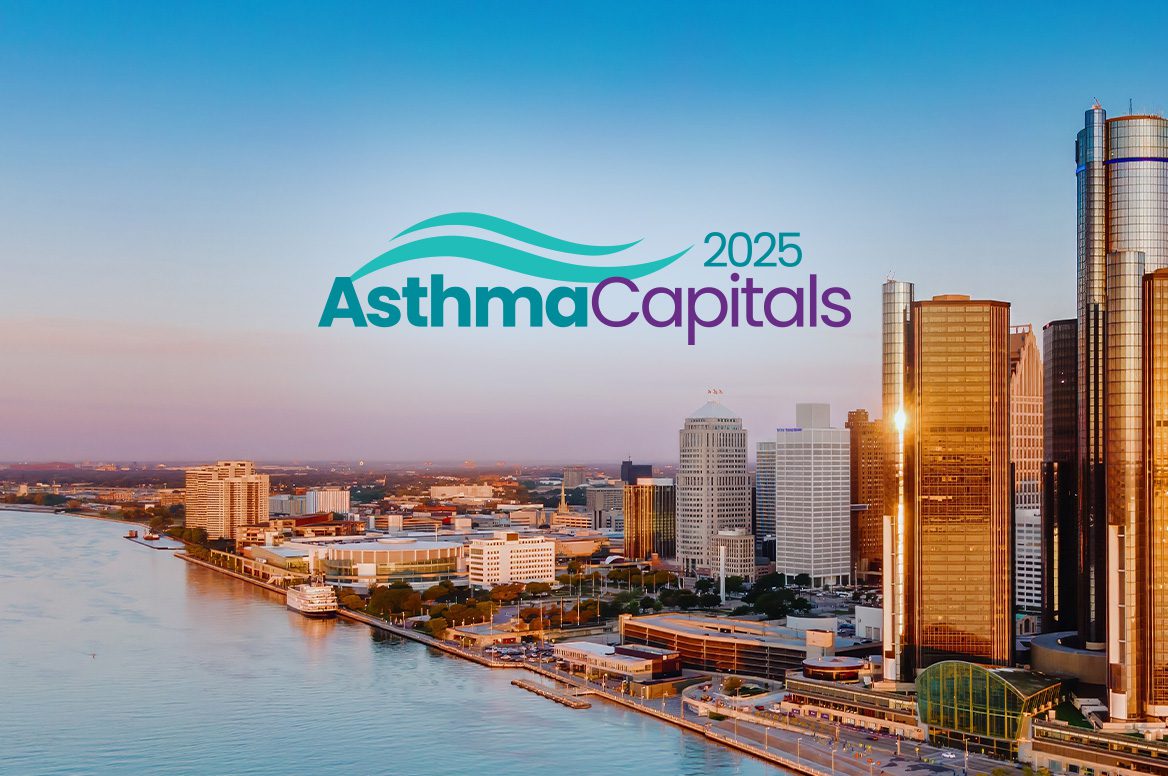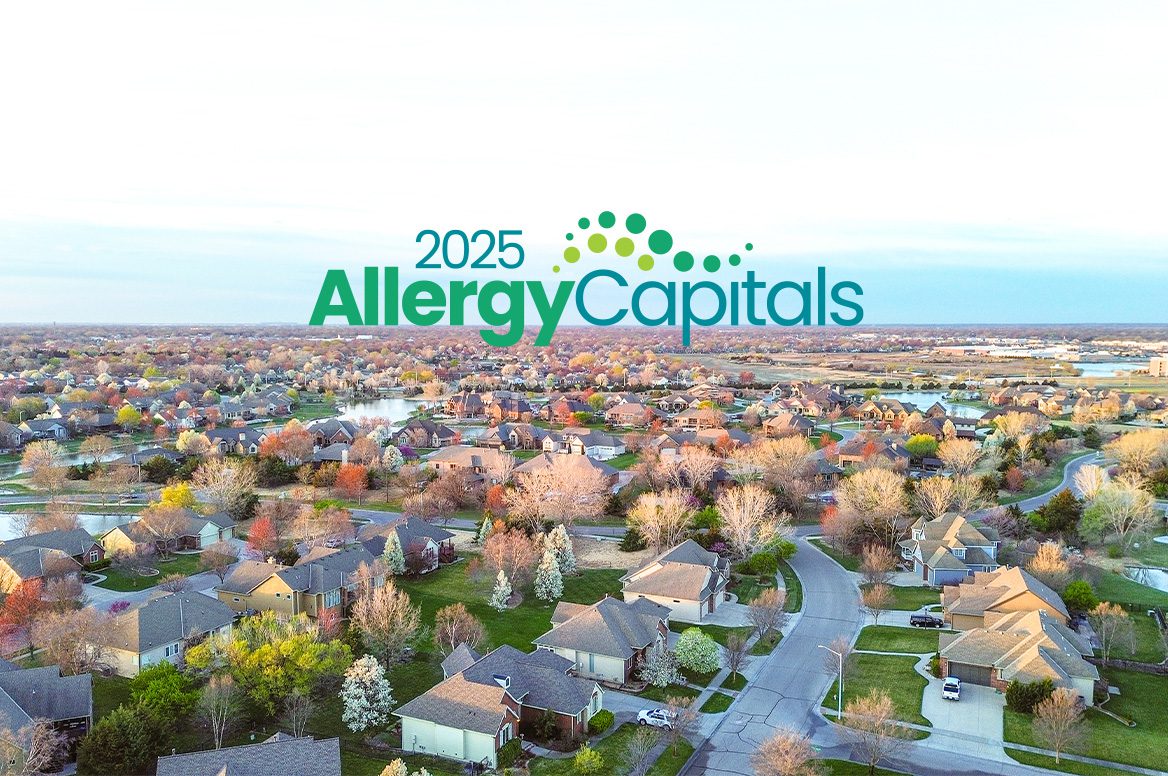Our Research
Our Asthma and Allergy Research
Research is an important part of our pursuit of better health. Through research, we gain a greater understanding of illnesses and diseases, new medicines, ways to improve quality of life, and cures.
The Asthma and Allergy Foundation of America (AAFA) conducts and promotes research for asthma and allergic diseases. Our research goals:
- Prioritize the patient and family voice in research
- Enhance the understanding of asthma and allergic diseases
- Develop improved treatments to manage these diseases
- Help search for cures
- Support advanced training in allergy and immunology
- Better understand patient awareness
- Find out how behaviors relate to asthma and allergy prevention and treatment
- Improve patient involvement in research from study design to clinical trial
Asthma Research
AAFA conducts many research projects to better understand the needs of people with asthma. We research awareness, knowledge, preferences, and behaviors related to preventing, managing, and treating asthma.
AAFA’s research provides a different look at the geographic, demographic, and psychological impact of asthma in the United States. Our research offers helpful information about the asthma community.
Closed
Asthma Capitals™ Report
AAFA’s Asthma Capitals™ report is a yearly research project. It looks at the most difficult places to live with asthma. This report is a summary of 13 factors relating to asthma. It compares and ranks the 100 largest U.S. metro areas based on asthma rates, emergency room visits, and deaths from asthma.
Asthma Disparities in America
The report reviews the current state of asthma disparities and serves as a national call to action to fix the social inequities caused by structural racism that continue to plague vulnerable, at-risk patients, and families with asthma. It was published in 2020 as a 15-year update to AAFA’s Disparities in Asthma Care report.
AFFORD (Asthma in Families Facing Out-of-Pocket Requirements with Deductibles) Study
The goal of this research study is to better understand how different types of health insurance plans affect the experiences of people with asthma and their families, including:
- Decisions about medical care
- Use of medicines
- Their health
- Expenses
AAFA Brookings Report (PDF)
This whitepaper is titled “Community Based Approaches for Optimal Asthma Outcomes and Accountable Population Health.” It is written by the Center for Health Policy at Brookings and AAFA. It looks at the proof of chances to improve outcomes. It also looks at lowering costs by addressing the social causes of asthma.
My Life With Asthma Report
This national three-part study included adults with asthma, their caregivers, and health professionals to find out how severe asthma impacts daily life. The goal of the program was to learn more about asthma, especially severe asthma, to improve education and awareness.
Promoting Asthma Patient Engagement in Research (PAPER)
We believe patients play a vital role in advancing research. This 11-part video series explains asthma basics and why it’s important for patients to be part of research efforts.
Allergy Research
AAFA’s allergy research seeks to understand patient awareness, knowledge, preferences, and behaviors related to preventing, managing, and treating allergies. AAFA’s research offers different views on the impact of allergies in the United States. Our research helps advocacy efforts for the allergy community.
Closed
Allergy Capitals™ Report
AAFA’s Allergy Capitals™ report is a yearly research project. It finds the most challenging places to live with allergies during the spring and fall. This report ranks cities based on their average pollen level and allergy/sinus medicine use.
Anaphylaxis in America™
AAFA’s Anaphylaxis in America study looked at patient, public, and doctor attitudes and behaviors about anaphylaxis. The study was based on public and patient surveys. This study includes an article, “Anaphylaxis in America: The Prevalence and Characteristics of Anaphylaxis in the United States,” and a letter to the editor, “Anaphylaxis in America: A National Physician Survey.” Both of these were printed in the “Journal of Allergy and Clinical Immunology.”
Food Allergy Anaphylaxis in Infants and Toddlers
The Asthma and Allergy Foundation of America (AAFA) and its Kids with Food Allergies (KFA) division recently partnered with leading food allergy researchers to better understand how parents (and primary caregivers) of young children recognize the signs of allergic reactions and treat them. Results from AAFA’s Infants and Toddlers with Anaphylaxis (ITA) study have been published in the Journal of Allergy and Clinical Immunology: In Practice.
My Life With Food Allergy: Parent Survey Report
AAFA and its food allergy division, Kids With Food Allergies (KFA), conducted a three-part food allergy study to understand the burden of food allergy from three populations: parents of children with food allergies, teen/young adult patients with food allergies, and adults with food allergies.
Global Warming, Climate Change, Asthma and Allergy Health
This report presented by AAFA and the National Wildlife Federation talks about the impact climate change will have on people with asthma and allergies. Climate change causes longer allergy seasons and increases air pollution. This can create problems for people with asthma and allergies. We must act now to reduce risks.
National Pseudoephedrine (PSE) Awareness Studies
AAFA, with the help of Harris Poll, conducted a survey about how people use and choose medicine. It also looked at their attitudes about getting safe and helpful treatments. This study showed that people with allergies rely on and want access to pseudoephedrine (PSE).
Other Research
Patient-Focused Drug Development (PFDD)
The FDA created the PFDD initiative to collect patient insights on specific diseases, including their impact on daily life and treatment options. PFDD meetings are designed to connect patients and caregivers directly with the FDA, as well as researchers and drug developers. Some PFDD meetings are led by the FDA and others are externally-led by patient advocacy organizations. The meetings and resulting Voice of the Patient reports help the FDA see what is important to patients. This includes what people want treatment to look like (apart from a cure). AAFA collaborated with other patient organizations on three PFDD meetings on asthma in childhood, eczema, and food allergies.












